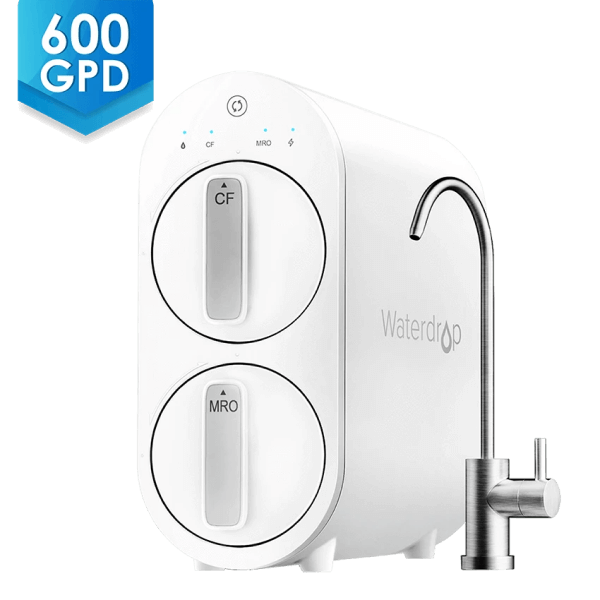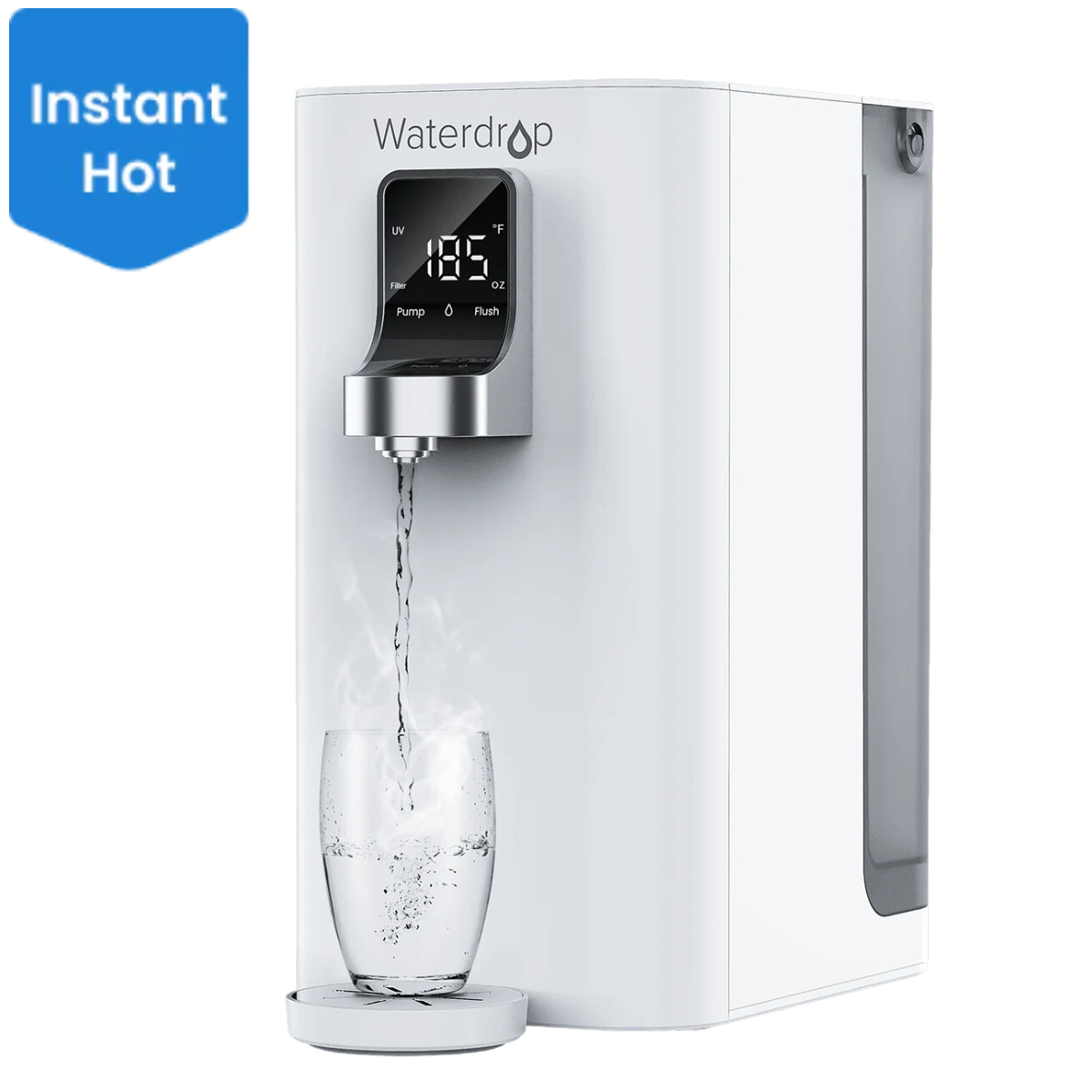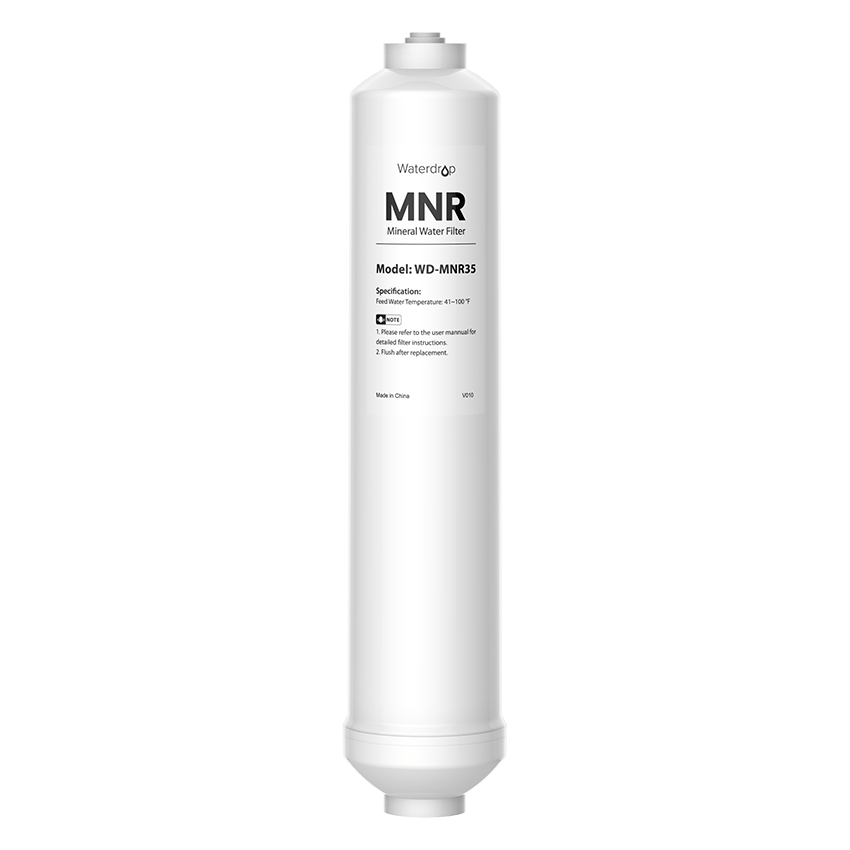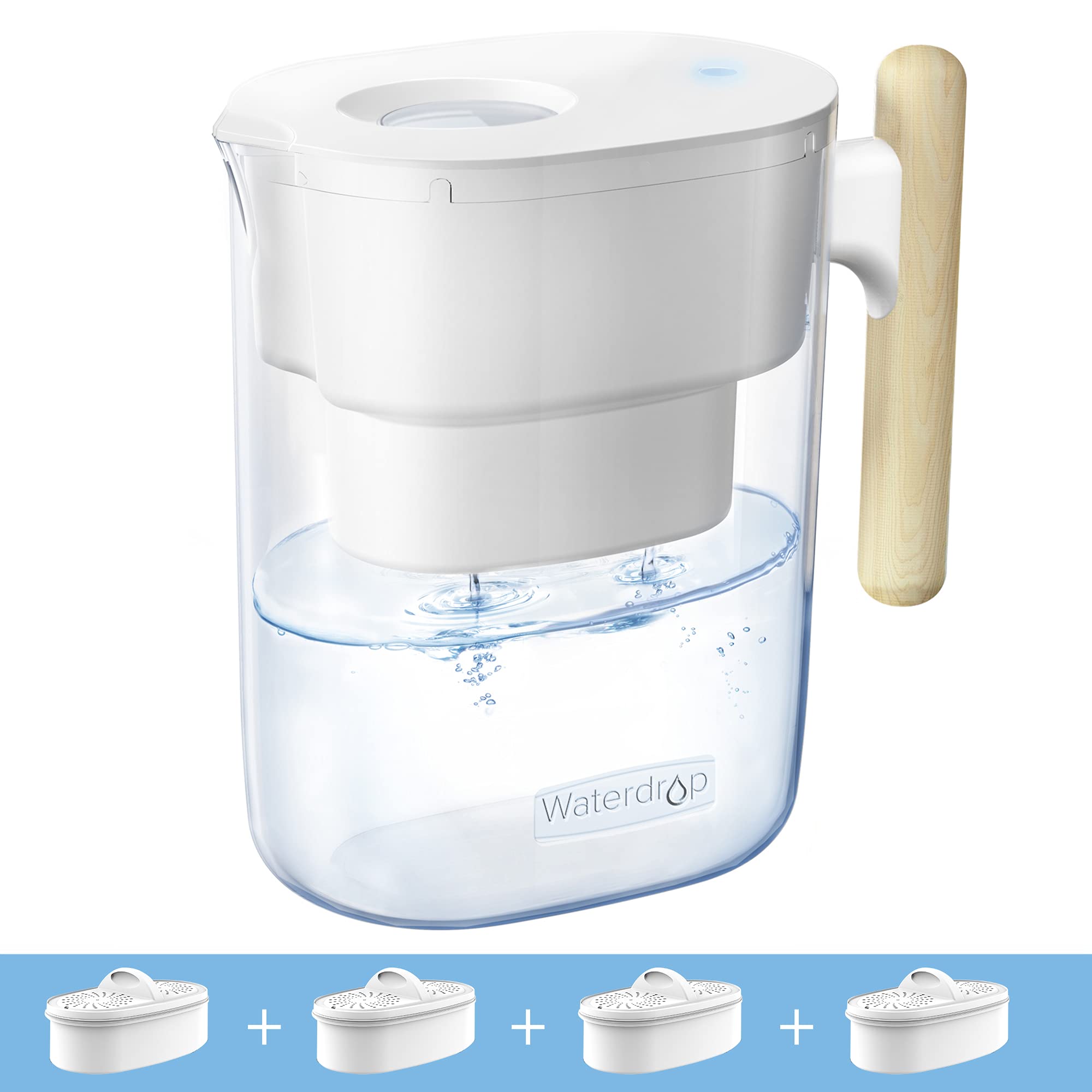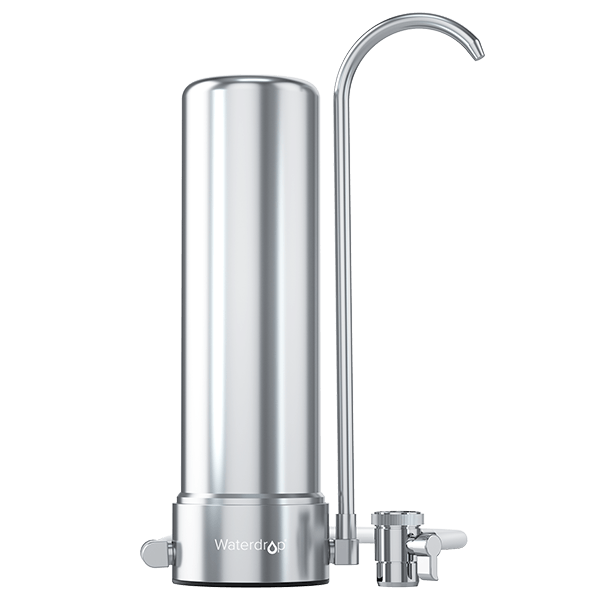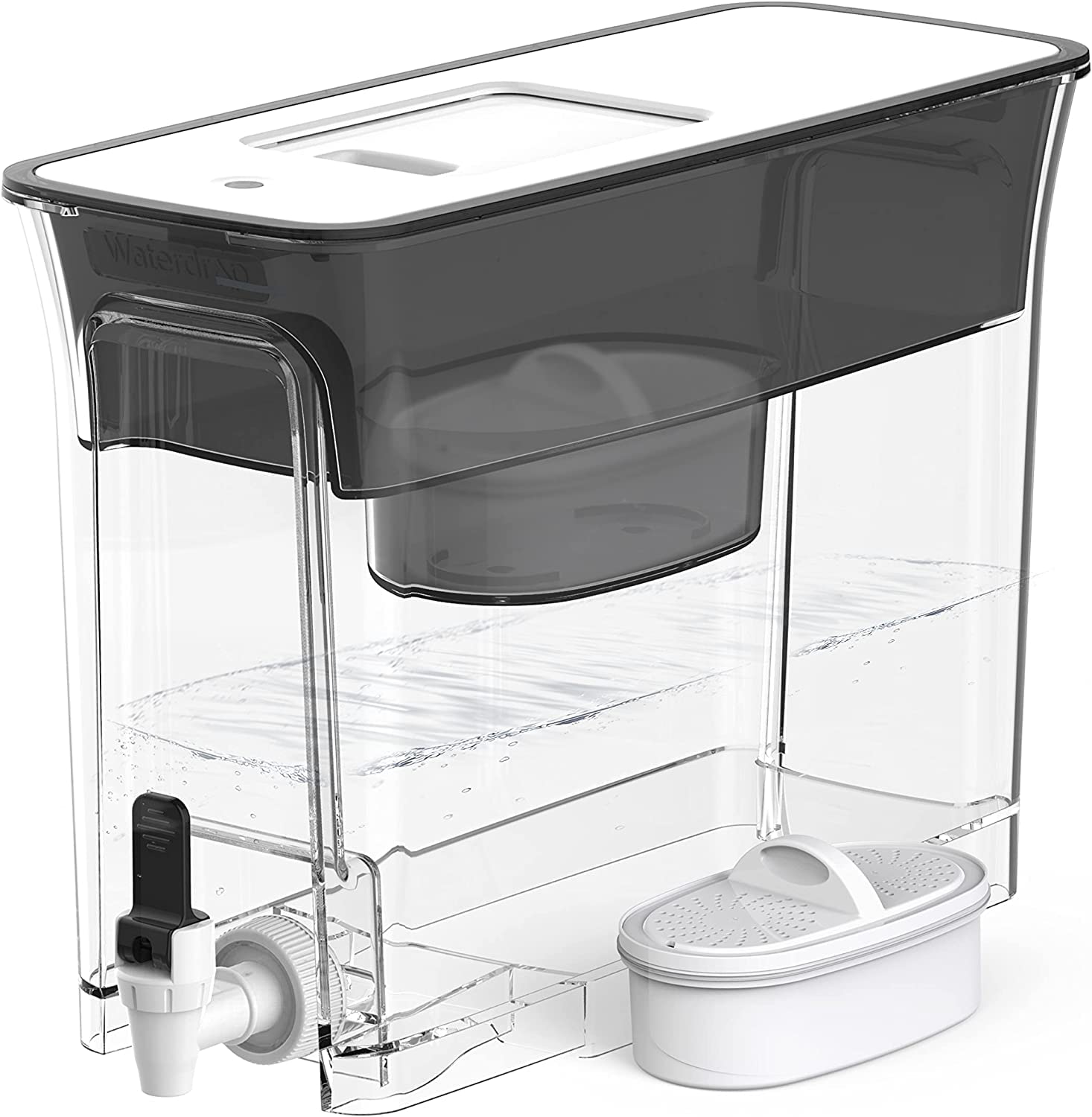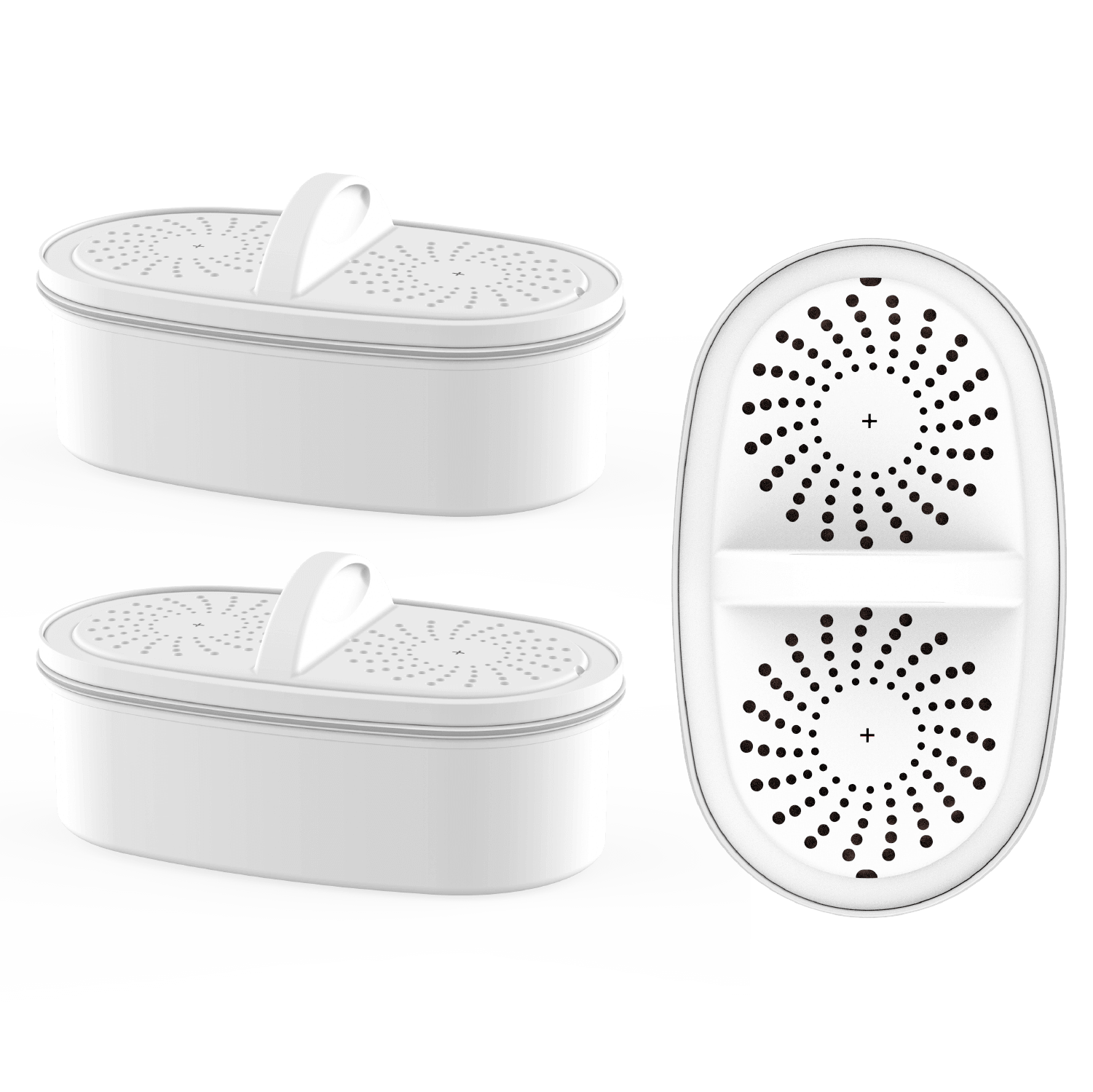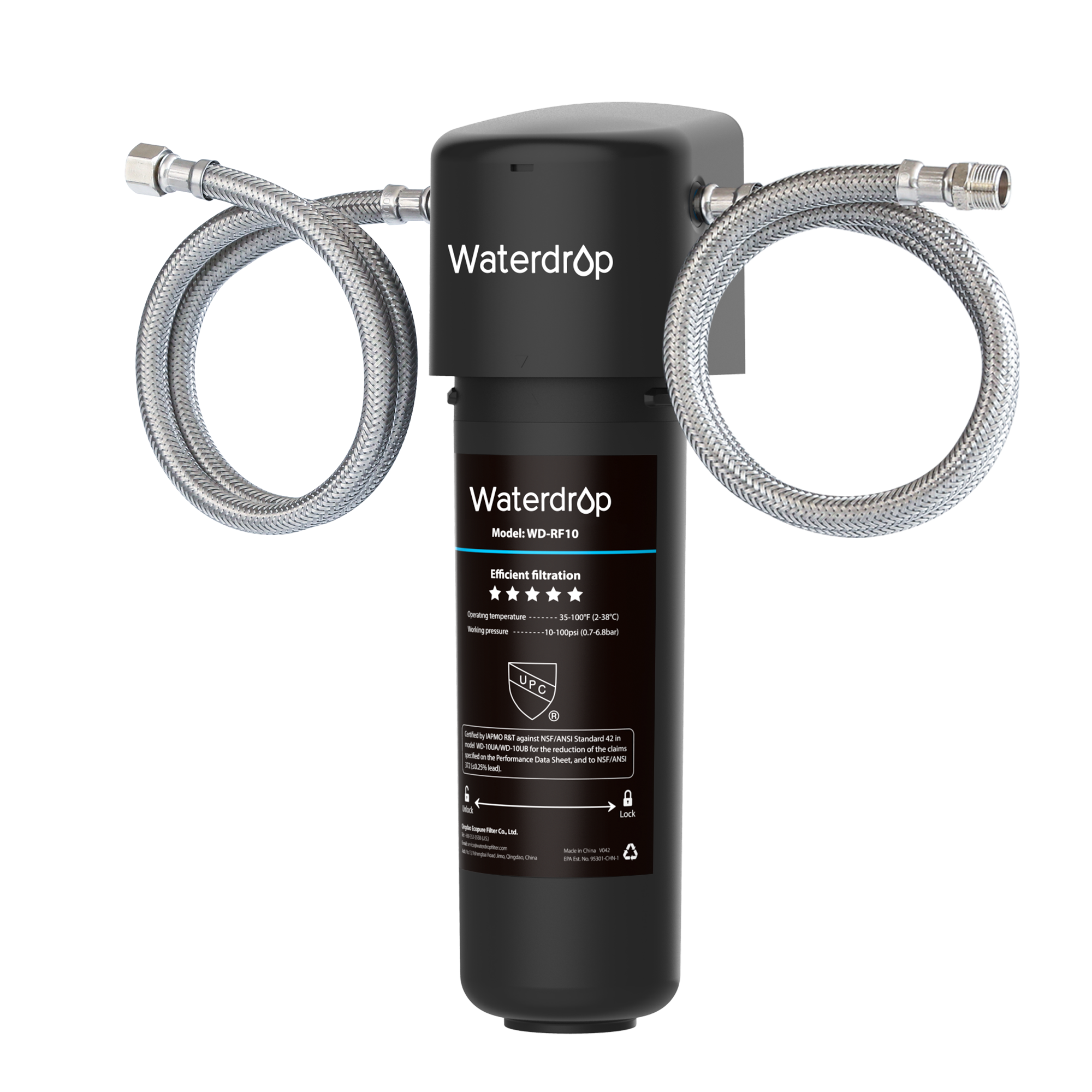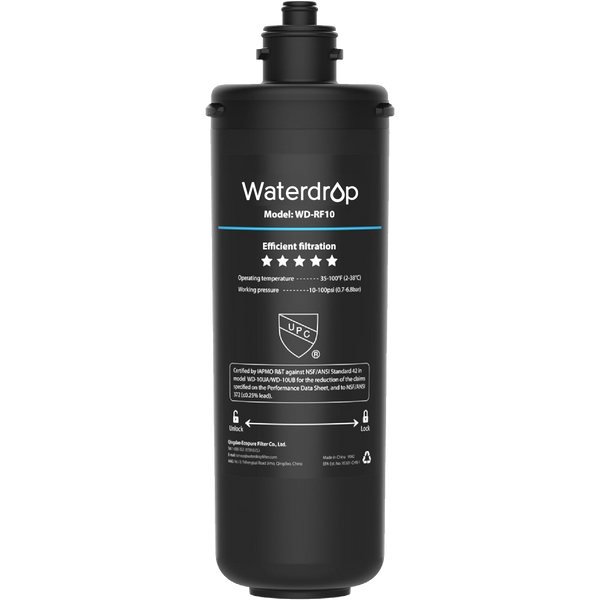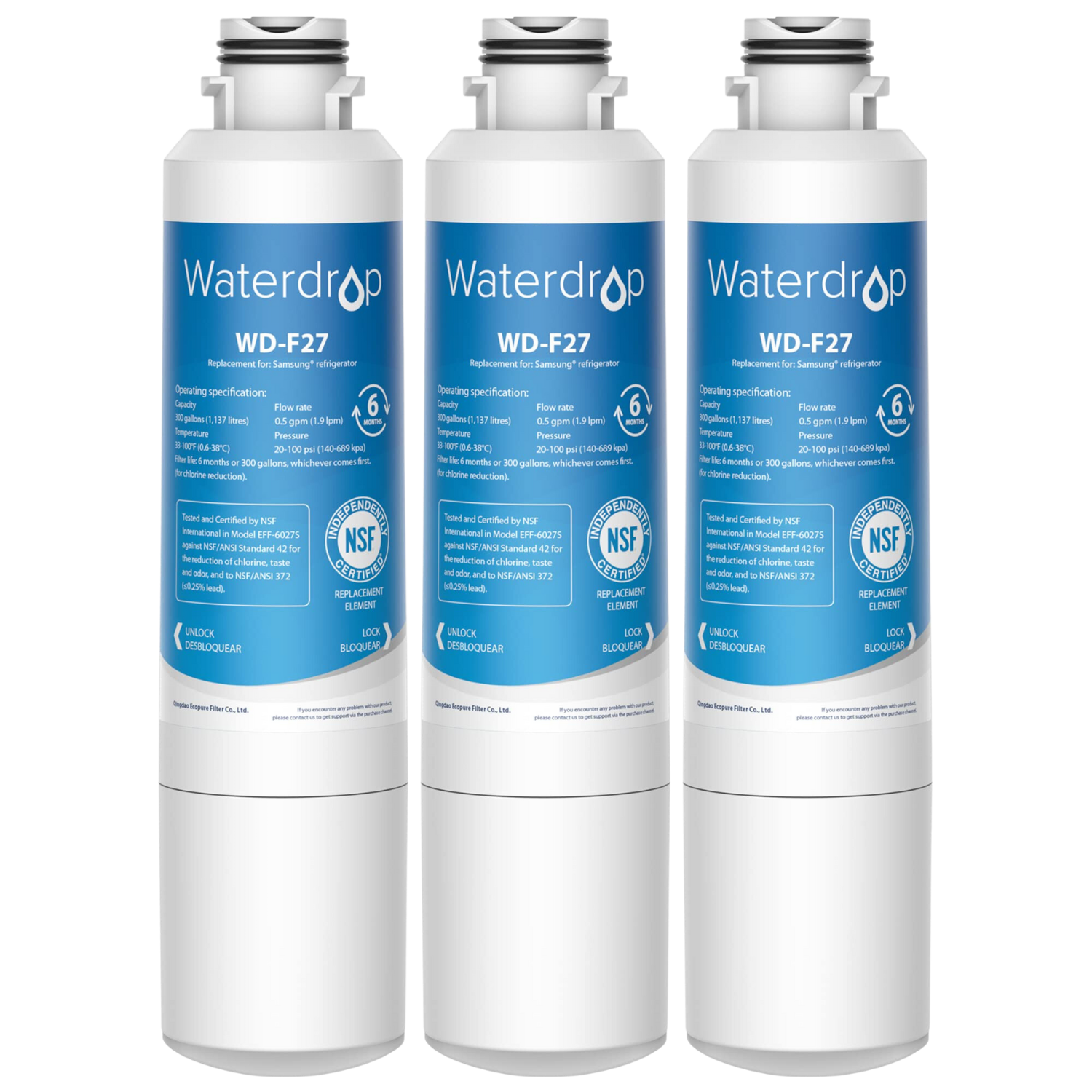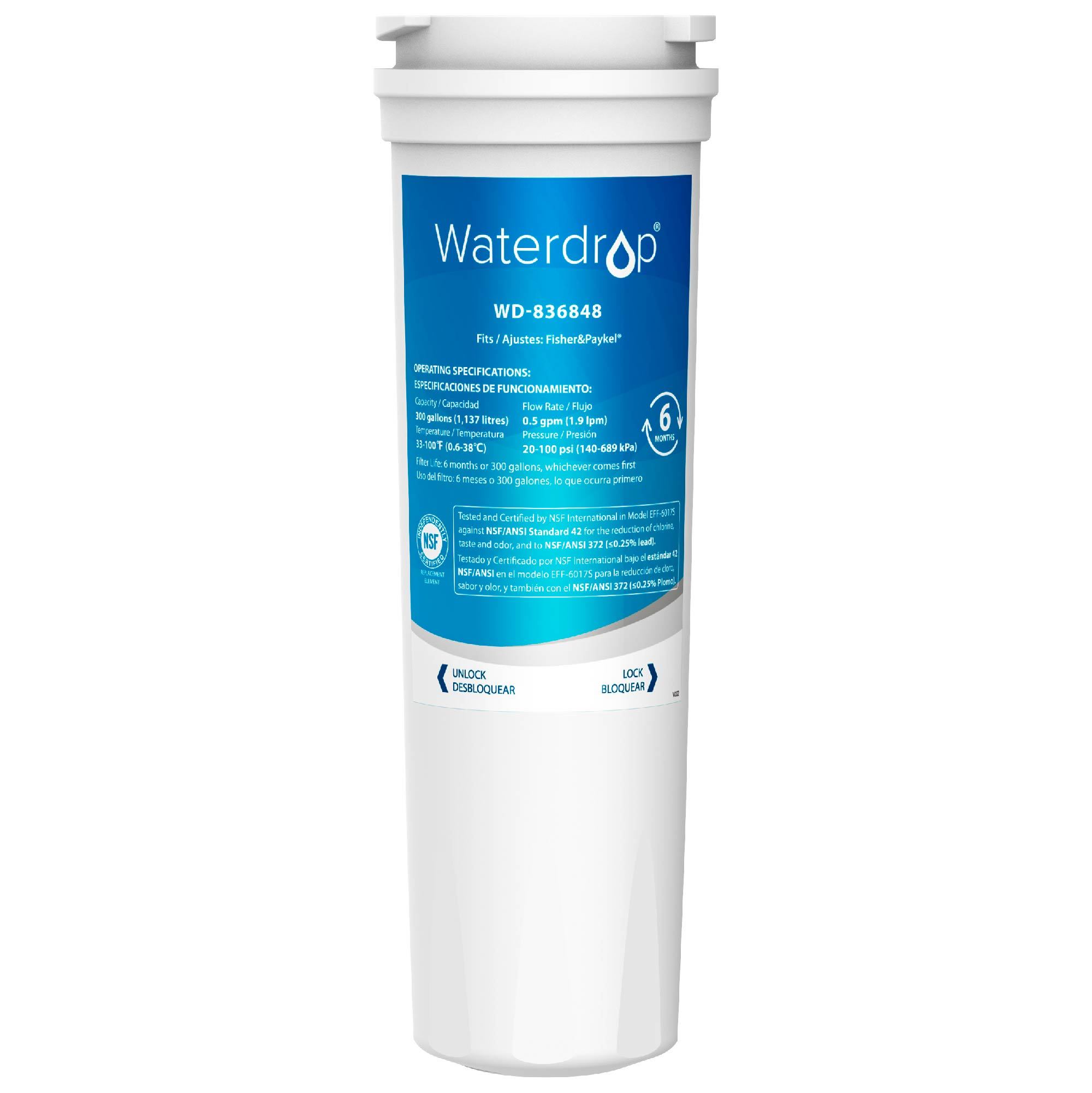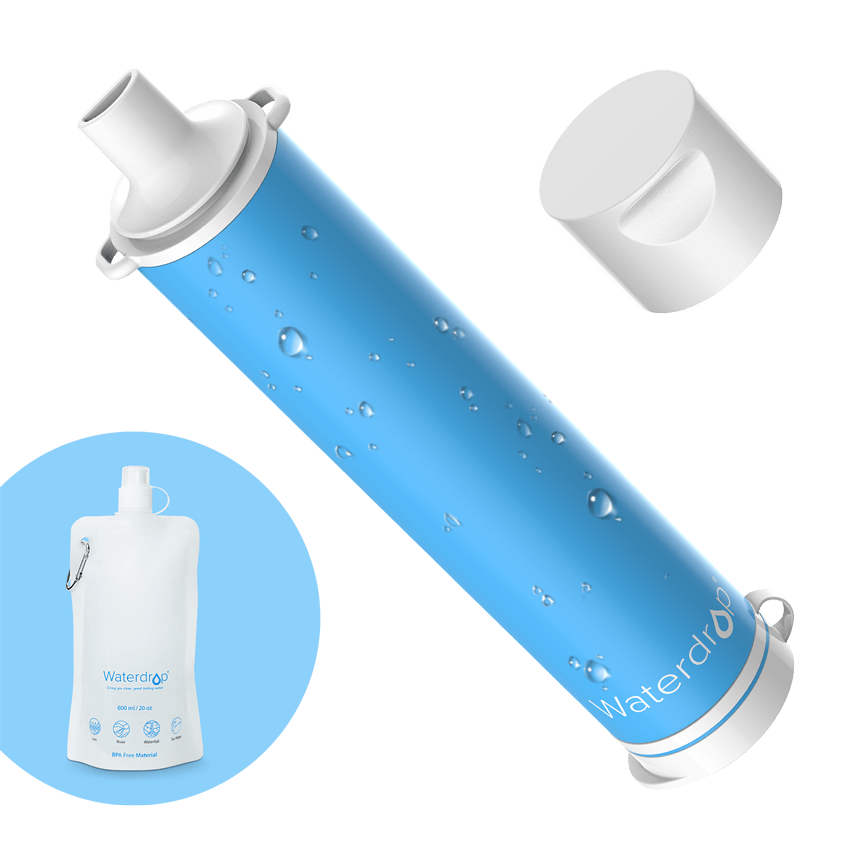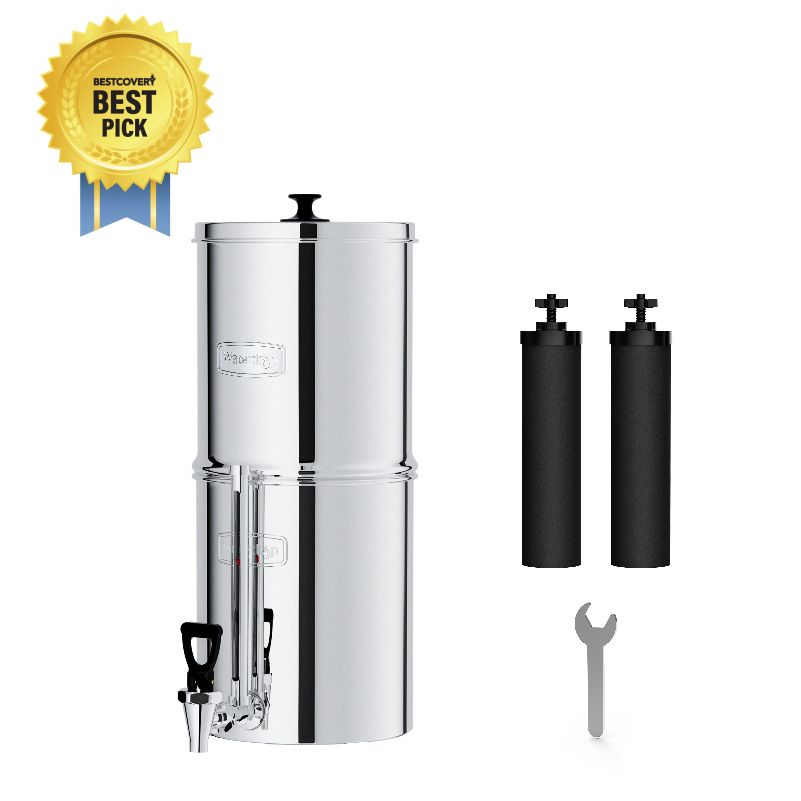When Can Babies Have Tap Water?
by Dr. Jonathan Doyle - Updated September 04, 2024
Everyone should drink water since it is necessary for sustaining physical health. Naturally, babies are not an exception. Timely hydration is another essential measure in safeguarding the health and development of babies. However, due to the way a baby’s body develops, it is not possible to give them water blindly.
Everyone should drink water since it is necessary for sustaining physical health. Naturally, babies are not an exception. Timely hydration is another essential measure in safeguarding the health and development of babies. However, due to the way a baby’s body develops, it is not possible to give them water blindly.
How Can Babies Stay Hydrated?
The best way for adults to stay hydrated is to drink straight water, which quickly reduces thirst and supports healthy bodily functions.
Nevertheless, it is not advisable for babies under the age of one to consume water directly, as it may be detrimental to their health. As of right now, breast milk or infant formula provide babies with their fair share of water since their kidneys are still developing and cannot handle too much water.
A baby who consumes water at an early age may develop water intoxication due to the dilution of electrolytes in the body. Furthermore, the child’s consumption of formula or breast milk might be impacted, which might affect how well the nutrients are absorbed. When the baby’s body functions are getting better and complementary foods are being given, you can start giving your baby water in small amounts later on in the growth process.
When Can Babies Start Drinking Water?
According to the National Health Service, caretakers should introduce your baby to drinking from a cup or beaker from around 6 months and offer sips of water with meals.
“Starting at six months of age, parents can typically give their babies a small amount of water at a time.” As per Dr. Buckingham’s statement.
Moreover, this is the ideal time for babies to start consuming solid foods. At this stage, numerous babies are capable of acquiring the ability to grasp a sippy cup with their mouths. This is also the time they learn how to sit up with assistance.
Why Should Babies Under Six Months Avoid Drinking Water?
Some people might wonder, “Why can’t babies drink water?” This is because until they turn six months old, Breast milk or infant formula is the primary source of nutrition for a baby. which can provide them with all the nutrients they require. Should the infant be consuming excessive amounts of water at this stage, it suggests that they will not be getting enough breast milk to meet their nutritional needs. This could lead to deficiencies in certain areas and alter the levels of those nutrients in their blood, potentially affecting their growth and development. Moreover, over hydrating babies can lead to discomfort and other problems like diarrhea.
Can babies Drink Water Without Limits After Six Months?
No, six months is regarded as the ideal age to start drinking water; that being said, you are still not allowed to drink an infinite amount of water. Water intoxication in babies can occur from consuming too much water, so it is important to introduce water to your child gradually. Babies can be introduced to water between six and twelve months of age. 4 to 8 ounces of water should be given to your baby every day, and it can eventually be incorporated into their diet on a regular basis. Breast milk and formula, however, continue to be your baby’s main nutritional sources up until the age of 12 months.
When your baby first starts to drink, it’s best to give him tiny amounts of water in a sippy cup. It is important to make sure your baby is getting formula or breast milk when he first begins to chew on the cup or drink a little. When your baby begins to eat solid foods, his need for liquids will increase, so resist the urge to force him to drink water at this time.
What Type of Water Is Best for Babies?
Clean water is a necessity for babies. Monitoring the quality of the water is essential for your baby’s healthy development, regardless of whether they are introduced to it through formula before the age of six months or begin to drink it gradually thereafter. Many experts say that the safest option for parents choosing formula water is to boil and cool tap water or any kind of bottled water to room temperature.
However, given how sensitive their immune systems and bodily functions are, babies’ healthy development will unavoidably be at risk if the quality of tap water is not guaranteed. It is especially important for parents to exercise extreme caution when choosing a source of water for their babies, particularly if the infant is younger than three months old, was born prematurely, or has a compromised immune system. This is due to the fact that contaminated water exposes these babies to dangerous bacterial infections.
Install the Waterdrop Reverse Osmosis System, G3P600 in your house to enjoy safe, clean water like never before for you and your family. With an 8-stage reverse osmosis process and an amazing 600 GPD fast flow rate, this product’s advanced water filtration system guarantees that every sip of water for babies is free of pollutants. While all of this is going on, the clever, stylish design ensures that your baby has access to clean water at all times, so you can relax knowing that your child’s health is in capable hands.
Make Sure Babies Can Drink Safe Water
Verify the tap water’s quality before giving your baby any water or formula for the first time. Although fluoride in tap water helps prevent tooth decay, your baby’s health may be negatively impacted by excessive fluoride. Lead also poses a risk to young children. Check your house for the following items:
Installing a water filtration system is recommended if any of these circumstances apply to your home, as well as if you are concerned about lead exposure and the presence of toxins in your water that are detrimental to the development of young children.
How to Recognize Dehydration vs. Water Intoxication in Babies?
With their immune and digestive systems still developing, babies are susceptible to various risks when they first come into contact with water. We have put together a list of some of the possible situations to help some new parents be able to avoid problems as much as possible and better care for their babies’ healthy growth.
Intoxication by Water
Hyponatremia, or water intoxication, is characterized by abnormally low levels of sodium in the blood. This medical condition can be triggered by providing water to babies under the age of six months or by administering excessive quantities of water to them after six months.
Limiting the amount of water your baby consumes and keeping a close eye on their health are crucial because an excess of water can cause an imbalance in the body’s sodium levels, which can result in seizures, brain damage, coma, or even more serious conditions. Other behavioral abnormalities brought on by water intoxication include:
If your child displays any of these symptoms of water intoxication, or if you suspect that they may be experiencing it, take them to the doctor to prevent any irreversible damage.
IInfantile Dehydration
Babies may experience fevers or even dehydration in the summer as the temperature rises. Your baby may display some of the following symptoms of dehydration during this time of year if they are not drinking enough water.
1. Fewer than six damp diapers in a 24-hour period.
2. Urine with a dark yellow color.
3. The incapacity to shed tears or cry.
4. A parched mouth.
5. Sunken eyes.
6. Dry skin resists regaining moisture when lightly pressed.
7. Exceptionally sleepy or listless.
8. Chilly feet and hands.
9. The sunken fontanel, or the “soft spot” atop the skull.
10.Easily agitated or overly fussy.
However, please be aware that if your child is younger than six months old, has a fever, or is dehydrated, you still need to breastfeed or formula feed them frequently to ensure they are getting the right amount of fluids and nutrients, even in hot weather. In other words, try not to give water at this time unless your doctor specifically instructs you to do so.
What Are the Benefits of Pure Water for Babies?
After six months, babies begin to gradually drink a certain amount of water to stay hydrated. It is usually recommended that fathers and mothers install a water purifier to ensure that the water is safe and healthy for their babies. Pure filtered water has many benefits for babies, such as:
Unadulterated and Secure
Filtration removes dangerous substances from water, such as bacteria, viruses, heavy metals (such as lead and mercury), and chemical pollutants (such as pesticides and residual chlorine). Safe and pure water gives your baby’s body the nutrition and oxygen it needs while also assisting in the elimination of waste.
Preventing Disease
Pure water reduces the chance of intestinal problems such as diarrhea caused by tainted water. Furthermore, drinking pure, healthy water lessens the need for fruit juices and ensures that babies receive the fluids they require on time.
Sustaining Growth
Babies drink a lot of water as they grow. During a child’s crucial developmental stage, pure water promotes bone growth, keeps tissues and joints lubricated, and protects them from harmful substances.
Promotes Nutrient Uptake
Pure water ensures that your baby’s body is receiving nutrients, maintains a stable blood volume, and aids in the body’s absorption of nutrients. When your baby is first transitioning to dairy and complementary foods, this is especially important. The Waterdrop Reverse Osmosis water filter enhances the water’s quality by retaining nutrients in the water.
What Other Liquids Can Young Children Drink?
The only foods the CDC advises for babies between the ages of 6 and 12 months are breast milk, formula, and water. You can start giving the baby whole milk or fortified soy beverages once they turn 12 months old.
The CDC and NHS advise against the following drinks:
Smoothies and fruit juices are high in nutrients, but they also include natural acids and sugars that can cause tooth decay. At age five, kids are allowed to consume up to 150 milliliters of pure fruit juice or smoothie each day. In conclusion, clean, safe water remains the best option for baby formula.
Conclusion
Babies can progressively drink more water after six months of age. Choosing healthy water and keeping an eye on the quality of the water are essential right now. If you do not have access to sufficient and accurate monitoring data on the quality of the water in your home, we recommend installing a water purifier to prevent potential health risks to your baby and your family from water safety issues.


